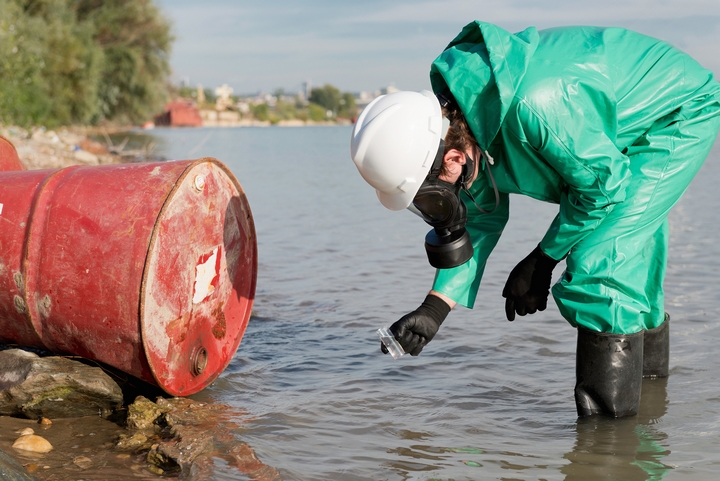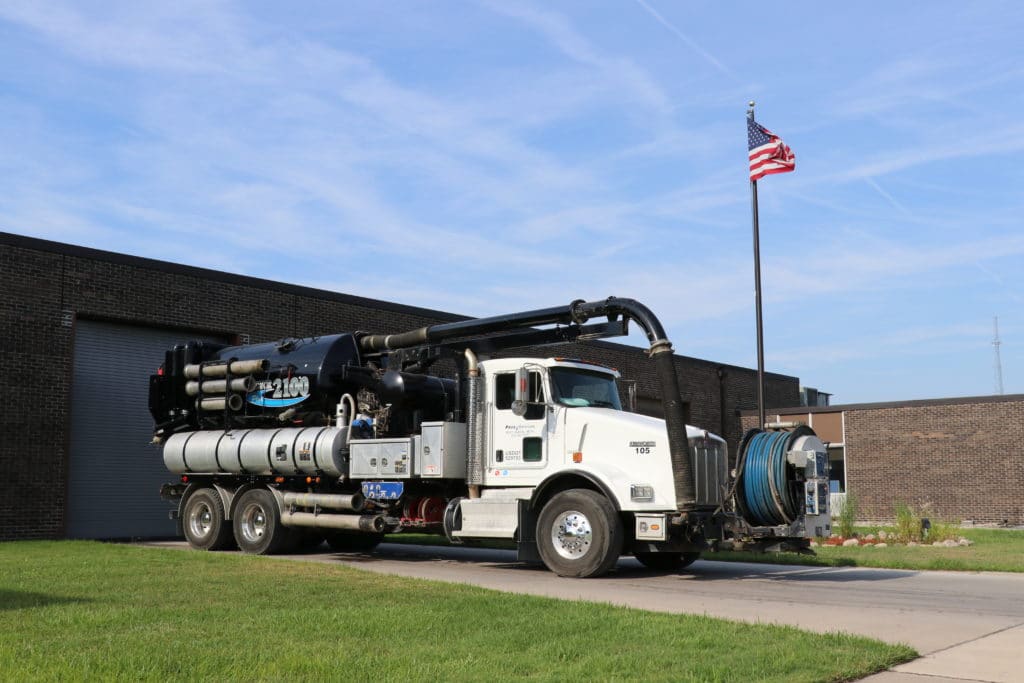Professional Liquid Waste Removal Melbourne: Fast and Budget Friendly Services
Professional Liquid Waste Removal Melbourne: Fast and Budget Friendly Services
Blog Article
Understanding the Comprehensive Process of Fluid Waste Disposal: Ideal Practices and Environmental Influence Factors To Consider
The monitoring of fluid garbage disposal is a complex concern that needs a thorough understanding of various finest techniques and their connected environmental effects. From the sorts of liquid waste created to the approaches employed for collection, therapy, and last disposal, each step plays a crucial function in protecting communities and public health. As governing criteria advance and innovation advancements, the conversation around these processes becomes progressively important. What effects do these changes hold for future sustainability efforts, and exactly how can stakeholders make certain that they are properly attended to?
Kinds Of Fluid Waste
Comprehending the various kinds of liquid waste is crucial for effective monitoring and disposal methods. Liquid waste can be extensively classified right into several types, each requiring special handling and treatment strategies.
Industrial liquid waste usually includes harmful materials, consisting of hefty steels, solvents, and chemicals, created during producing processes. These wastes require stringent regulatory compliance to secure human wellness and the setting. Domestic liquid waste mostly refers to wastewater created from households, consisting of sewer and greywater, which, although less poisonous, can still pose significant dangers if poorly managed.
Agricultural liquid waste, including runoff from ranches, commonly has plant foods and chemicals that can bring about ecological deterioration otherwise dealt with sufficiently. Clinical fluid waste, created from medical care centers, includes polluted fluids such as bodily liquids and chemicals, requiring specialized disposal techniques to stop infection and environmental contamination.
Finally, oil and grease waste, commonly generated by dining establishments and vehicle sectors, can create extreme obstructions in drain systems if not handled correctly. Comprehending these classifications facilitates targeted methods for treatment, compliance with regulations, and reliable disposal approaches, inevitably advertising environmental sustainability and public health safety.

Collection Methods
Reliable collection techniques are important for the appropriate administration of liquid waste, making sure that it is gathered securely and successfully before therapy or disposal. Different strategies are employed depending on the kind of liquid waste produced, the volume, and the particular features of the waste.
One typical approach is making use of dedicated collection containers or sumps, which are developed to catch liquid waste at the source. These systems typically include pumps that help with the transfer of waste to bigger storage containers or treatment centers. Additionally, mobile collection systems geared up with vacuum cleaner innovation are utilized in situations where waste is created intermittently or in hard-to-reach areas.
For commercial settings, closed-loop systems can properly lessen leaks and spills, enabling for the recuperation and reuse of fluid waste. It is also crucial to train personnel on correct collection protocols to reduce dangers linked with harmful compounds.
Moreover, applying regular maintenance timetables for collection equipment guarantees ideal performance and safety and security. The combination of sophisticated surveillance systems can boost collection effectiveness by providing real-time information on waste degrees and possible threats. In general, reliable collection approaches are fundamental to lasting fluid waste management practices.
Therapy Processes
Treatment processes play an essential duty in the monitoring of fluid waste, changing possibly unsafe products right into multiple-use resources or risk-free effluents - liquid waste disposal. These processes can be extensively categorized into physical, chemical, and biological approaches, each customized to attend to certain pollutants present in the waste stream
Physical treatment methods, such as sedimentation and filtration, job by removing suspended solids and particulate issue. These strategies are typically the initial step in the treatment chain, efficiently decreasing the lots on succeeding procedures. Chemical treatments include making use of reagents to reduce the effects of hazardous compounds, precipitate hefty steels, or oxidize organic pollutants, thus boosting the safety of the effluent.
Biological treatment procedures, consisting of turned on sludge systems and anaerobic digestion, maximize the natural click capabilities of bacteria to weaken raw material. These methods are especially efficient for wastewater including eco-friendly toxins. Advanced therapy technologies, such as membrane layer purification and progressed oxidation processes, are significantly utilized to attain higher degrees of purification.
Integrating a combination of these therapy techniques not only ensures conformity with regulative requirements yet also promotes ecological sustainability by recouping useful resources from fluid waste.
Disposal Options
How can companies make sure the liable and risk-free disposal of fluid waste? Efficient disposal alternatives are important for safeguarding public wellness and the atmosphere. The primary methods include land incineration, treatment, and disposal followed by discharge right into community wastewater systems.
Land disposal includes the cautious containment of liquid waste in assigned land fills, ensuring that it does not seep right into bordering dirt or water. Incineration, on the other hand, topics fluid waste to heats, transforming it right into ash and gases, which call for appropriate filtering to reduce emissions. This technique is ideal for dangerous wastes that can not be dealt with with standard ways.
In cases where fluid waste can be treated, organizations may opt for organic or chemical therapy procedures to counteract dangerous parts prior to discharging the dealt with effluent right into community systems. This course commonly straightens with regulative demands, making sure that the effluent satisfies safety criteria.
Eventually, companies should conduct detailed evaluations of each disposal alternative to establish its feasibility, thinking about factors such as waste composition, regulative conformity, and prospective dangers to wellness and the environment. By picking ideal disposal techniques, services can contribute to a liable waste management method.
Environmental Influence
The environmental influence of liquid waste disposal is an essential consideration for companies seeking to lessen their eco-friendly footprint. Inappropriate disposal techniques can cause substantial contamination of water resources, soil deterioration, and adverse results on neighborhood ecological communities. For have a peek at these guys example, harmful liquids can seep right into groundwater, positioning dangers to alcohol consumption water materials and marine life. Additionally, the discharge of unattended or inadequately treated waste right into surface area waters can result in eutrophication, resulting in oxygen deficiency and the succeeding fatality of fish and other organisms.

To alleviate these effects, organizations have to take on ideal methods such as carrying out extensive waste therapy procedures, promoting recycling and reuse, and adhering to governing criteria. By taking a positive strategy to fluid waste management, entities can substantially minimize their ecological impact while supporting lasting development goals. Ultimately, a thorough understanding of the ecological effects associated with fluid garbage disposal is necessary for educated decision-making and liable stewardship of all-natural resources.
Verdict
Effective administration of fluid waste is vital for protecting ecological honesty and public health. Eventually, an extensive understanding of fluid waste disposal not only reduces ecological influences yet likewise promotes a dedication to liable Clicking Here source management and ecological stewardship.
The monitoring of fluid waste disposal is a multifaceted problem that needs a thorough understanding of different ideal techniques and their associated environmental effects. From the types of liquid waste produced to the techniques used for collection, therapy, and last disposal, each action plays an important duty in guarding ecosystems and public health.The environmental impact of liquid waste disposal is a vital consideration for organizations looking for to minimize their ecological footprint. Ultimately, an extensive understanding of the environmental effects connected with liquid waste disposal is important for informed decision-making and responsible stewardship of natural resources.
Inevitably, a thorough understanding of fluid waste disposal not just reduces environmental impacts but additionally promotes a commitment to liable source administration and environmental stewardship.
Report this page